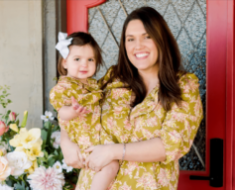The latest report from the RCOG’s Each Baby Counts clinical initiative shows there was a 14% increase in the number completed local investigations into stillbirths, neonatal deaths and severe brain injuries that occurred from incidents during term labour in 2016 across the UK, when compared to 2015.
In 2016, 89% of completed local investigation reports contained more sufficient information for review which is necessary to drive clinical improvements to reduce the number of deaths and injuries.
The findings also show that different care might have led to a different outcome in almost three quarters of stillbirths, neonatal deaths and severe brain injuries included in the review.
There was an average of seven contributory factors per incident and this shows the complex relationship between clinical and non-clinical factors.
In almost half (45%) of the affected babies, guidelines and best practice were not followed. Reasons for not following guidelines included gaps in training, lack of recognition of problems, communication issues, heavy workload, staffing levels and local guidelines not being based on best available evidence.
There was also an increase in the number of parents who were invited to take part in reviews in 2016 – up to 41% from 34% in 2015. But in almost a quarter of instances parents were not involved, or even made aware, of reviews taking place.
Each Baby Counts is a clinical quality improvement programme that aims to halve the number of stillbirths and babies who die or are left severely disabled due to incidents during term labour by 2020.
Every year in the UK over 1,000 babies die or are left with a brain injury during term labour. These are investigated at a local level by a hospital or maternity unit. The Each Baby Counts team is bringing together the results of these local investigations to make recommendations to improve future care on a national level.
Now the RCOG is calling for a national centre of excellence for maternity care in the UK.
Of the nearly 700,000 babies born in 2016, 1,123 babies fulfilled the Each Baby Counts criteria. There were 124 stillbirths, 145 babies who died early and 854 babies who sustained severe brain injuries during labour at term (babies born after 37 completed weeks of gestation).
The main areas of care in which improvements might have led to a different outcome for the babies affected included a failure of health professionals to identify or act upon relevant risk factors, issues related to monitoring of fetal wellbeing with cardiotocography (CTG) and blood sampling and individual education or training issues.
The report makes a number of recommendations including addressing workload issues, an individualised management plan for women during antenatal, labour and postnatal care, and ensuring local guidelines are updated in line with national guidance.
The RCOG continues to call for improvements to local investigations to ensure these are of the highest possible quality to drive improvements in maternity care and that all parents are invited to take part in reviews.
In a bid to take recommendations forward, the RCOG, in partnership with the Royal College of Midwives and the Department of Health and Social Care are establishing a four-year programme of work with a number of maternity teams. The aim is to support multi-professional learning and team working; the translation and delivery of services against national strategy; and to develop sustainable improvements in maternity services by disseminating best practice and learning locally and across the NHS.
Mr Edward Morris, Co-Investigator of Each Baby Counts and Vice President of the Royal College of Obstetricians and Gynaecologists, said:
“Sadly this latest report from Each Baby Counts shows that different care might have made a difference to the outcome for almost three-quarters of affected babies. This highlights that much work is still needed to ensure healthcare professionals are supported to implement recommendations. We are committed improving maternity safety and want to do everything possible to prevent these tragedies that can have a life-long and devastating impact on families.”
Professor Lesley Regan, President of the Royal College of Obstetricians and Gynaecologists, said: “The stillbirth, death of a newborn baby or the birth of a baby with brain injuries are life-changing events that profoundly affect women and their families. It is absolutely vital that we sustain the momentum and progress to date to ensure we really make a difference to maternity care in the UK.
“Now is the time to establish a national centre dedicated to making sure that the UK is the safest place in the world for women and their babies. By bringing together the shared expertise and experience of women and families, frontline maternity teams, academics and policymakers would be a significant step forward in driving improvement across the country.”
Health Minister Jackie Doyle-Price, said: “Whilst this report acknowledges that important progress has been made, there is still more to do to ensure every mother and child receives the world-class care they deserve as part of our ambition to halve the rates of stillbirths, neonatal deaths and brain injuries caused during and after birth by 2025.
“We are giving staff the support they need to continue to improve maternity safety and have made the largest every investment in midwifery training to ensure the NHS has the skills it needs.”
Source: Read Full Article





